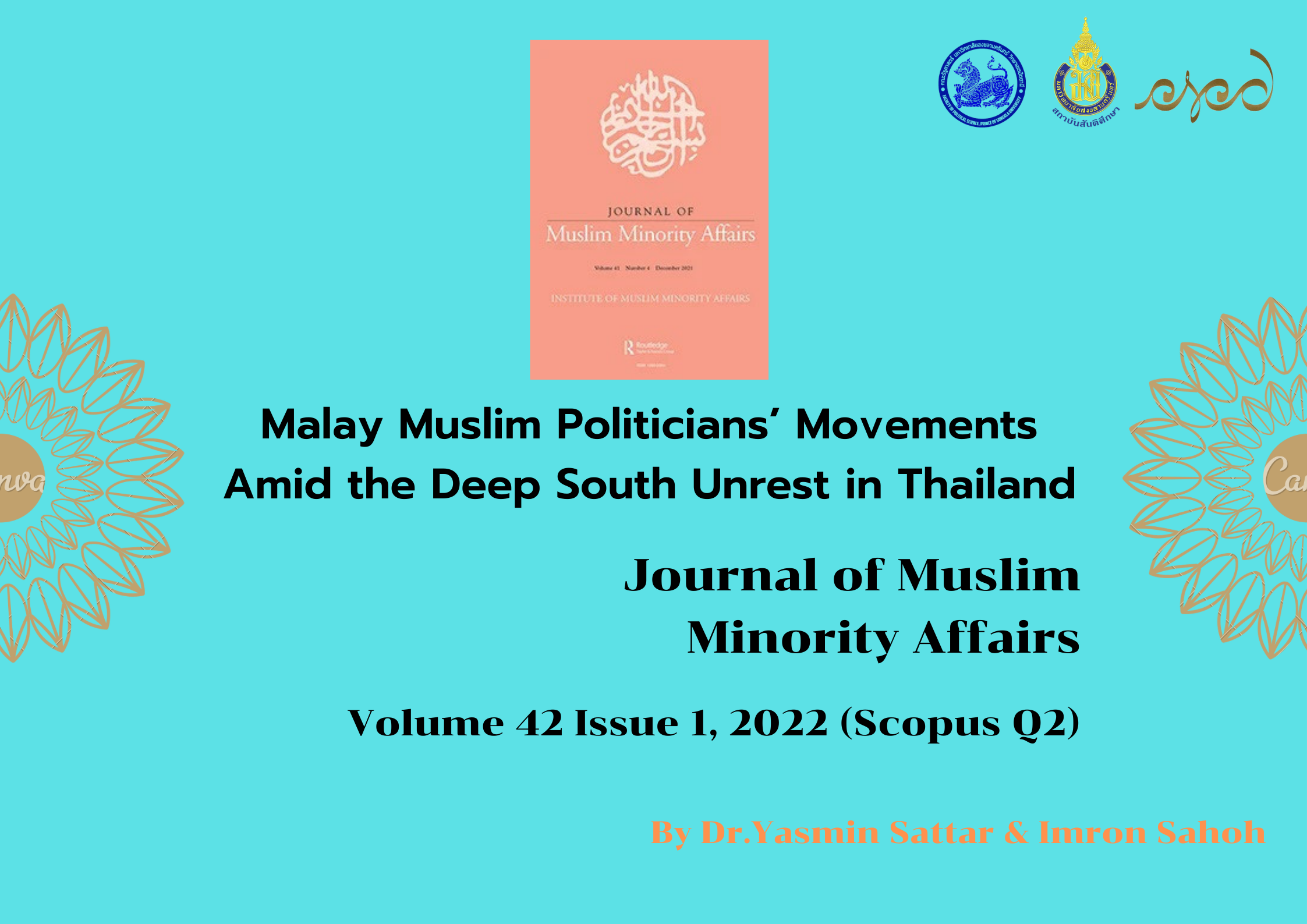
Malay Muslim Politicians’ Movements Amid the Deep South Unrest in Thailand
Yasmin Sattar
Yasmin Sattar, is on the Faculty of Political Science, Prince of Songkla University in Pattani, Thailand. Email: yasmin.s@psu.ac.th
Imron Sahoh
Imron Sahoh, Centre for Conflict Studies and Cultural Diversity, Institute of Peace Studies, Prince of Songkla University in Pattani, Thailand. Email: imron.s@psu.ac.th
Abstract
This qualitative study aimed to examine factors influencing Malay Muslim politicians’ movement dynamics amid changing political landscapes from 2004 to 2019 and identify their challenges. The samples included 20 participants, who were former and current Malay politicians, civil society representatives, and religious scholars in the southern border provinces (Deep South). Data were collected by interviews and two focused group discussions and subsequently analyzed by inductive analysis. Findings revealed that the factors influencing Malay Muslim politicians’ movement dynamics were the eruption of the Deep South violence and contextual differences across Thai political eras. These politicians’ significant challenges included political ideologies, ethnic and religious uniqueness, finance, and degrees of democracy. The political space’s suggestion included applying the democratic principles that preserve rights and freedom of social groups since squeezing this political space with unjustified limits could justify violence in demands of rights to identities.
References : Journal of Muslim Minority Affairs